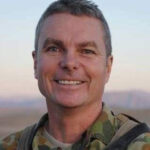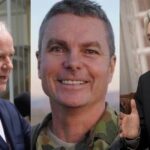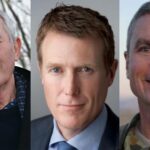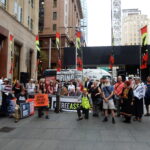A “Totalitarian Regime With a Sunny Climate”: McBride on Whistleblower Persecution
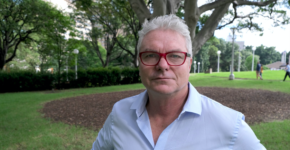
“I am appalled by what our country has become,” said former ADF lawyer David McBride. “I grew up in the shadow of the Second World War. I believed all that. And my disgust and anger to find that most of the people who make decisions in this country are really just charlatans in suits.”
McBride made these statements on 15 March during a speech he gave on the lawns of Parliament House in Canberra, before a group of Assange supporters gathered to mark the final leg of the Home Run for Julian tour, which wound its way through the south east of the country.
This week marks two years since Assange was hauled out of the Ecuadorian Embassy and locked up in London’s Belmarsh Prison. The Australian journalist continues to be held on remand, in conditions akin to torture, as the US seeks to extradite him for exposing its crimes of war.
The legality of Washington having reached across borders to arrest a foreigner on another nation’s soils in relation to alleged domestic crimes has long been questioned. However, it hasn’t seemed to have bothered the Morrison government.
Indeed, the local prosecution of McBride gives some indication as to why.
In the public interest
Our current Coalition government has taken it upon itself to run some high-profile prosecutions of citizens who all found it necessary to expose the corruption they’d come across whilst working in their various professions in the service of the public.
Witness K is one of them. The former ASIS agent blew the whistle on government ministers and employees, who had sanctioned the 2004 bugging of East Timor government offices, so they could get the upper hand in resource negotiations.
Former ACT attorney general, Bernard Collaery is another. The lawyer became involved in the Dili bugging revelations when the Australian inspector general of intelligence and security suggested K speak with him about the bugging matter, as Collaery was an ASIS-recommended legal professional.
And then there’s McBride. After serving two tours of Afghanistan as an official military lawyer, he went to his superiors with concerns about how operations were being run by our forces in the Central Asian country. But, as his concerns were dismissed, he felt compelled to go to the press.
National security interests
Back on the lawns of parliament at the Assange event, there was a sentiment amongst the speakers – including Iraq War whistleblower MP Andrew Wilkie – which questioned why the government is prosecuting those who exposed the crimes and not the perpetrators.
McBride is facing up to 50 years imprisonment for exposing war crimes similar to those documented in the Brereton report. And his case is shrouded in secrecy. As his lawyer Mark Davis has explained, in running the case the brief must be kept in a safe, whilst certain actions he makes are monitored.
Sydney Criminal Lawyers spoke to David McBride about what Assange has achieved, his belief that no prosecutions will come out of the Brereton investigation, and how he once whole-heartedly believed that what the Australian government was doing overseas must be right.
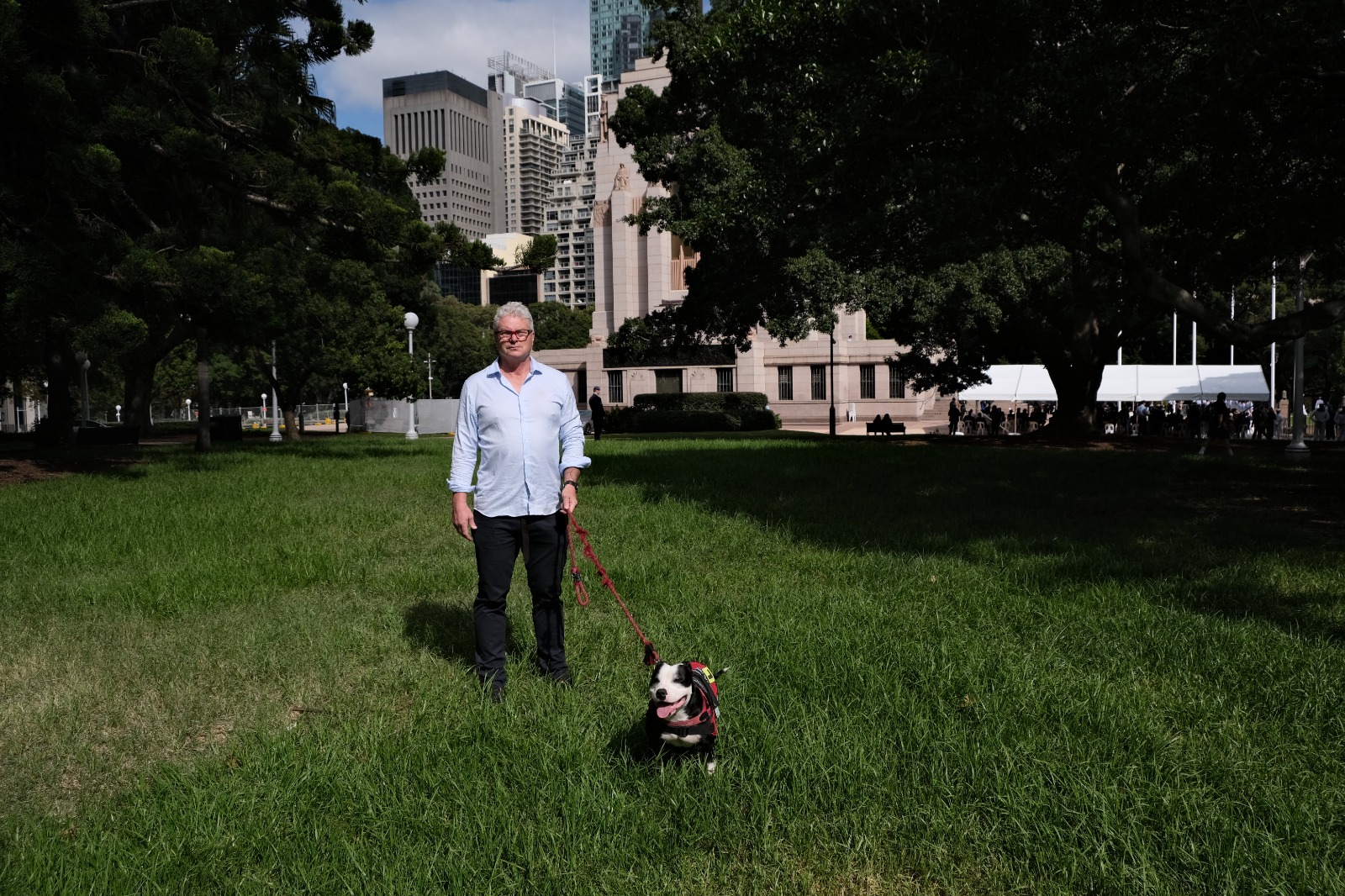
After winding its way through Victoria and NSW, the Home Run for Julian road tour arrived in Canberra on 14 March. You addressed the official event on the lawns of parliament.
Mr McBride, in the speech you gave at the event, you said, “Nobody ever goes to trial except the truth teller.” Can you talk on how that statement relates to Assange?
Assange pointed out many things, not just within the US government, but also the British government, which deserved investigation and scrutiny in relation to the wars in Iraq and Afghanistan. And no one was ever investigated.
I find that very disturbing. If they want to come out of it looking good, before they prosecuted him, they should have looked into the various crimes of government that he exposed.
But they haven’t looked into any of it. They haven’t even made an effort to say there were no crimes.
They’ve just gone after the person that exposed the information. And that’s terrible.
While the UK decision to deny extradition was based on its determination that US authorities wouldn’t be able to guarantee that he didn’t take his own life, it validated Washington’s position on why his actions warranted the 18 charges he would face there.
Despite English-speaking western democracies pursuing him and the mainstream media remaining silent, support around the globe for Assange is huge, and his allies are particularly determined in their support for him.
What would you say his legacy has been thus far?
He will always be remembered for his statement: If wars could be started by lies, peace can be established by truth.
That will be his legacy: to say that nations are geared up for war and encouraged in war.
As we have seen in the movie Vice about Dick Cheney, governments often use things like focus groups. The same sort of techniques that they use to sell Coca Cola are used to sell very questionable foreign policy objectives.
Assange tried to alert the world to that. And what’s little known yet is it wasn’t just Chelsea Manning. A lot of people within the US and British government gave him information because they too were appalled by what was going on.
There were obviously other people who were never charged.
Julian Assange made it possible for the whole disgusting monolith of western foreign policy to be seen in complete.
This is why it’s important that he’s not just released because he’s a suicide risk. His lawyers need to win the argument to say that what he did was a public service, and it wasn’t a crime.
Assange’s fate hangs in the balance of the UK and US criminal justice systems. Meanwhile the Australian government has done little to support him.
How would you sum up the actions of the Australian government in relation to one of its own citizens?
It’s totally hopeless and reprehensible. They pretend that it’s the workings of the rule of law. But there’s no doubt on foreign policy issues, the Australian government answers to the US government. The UK government does as well.
This organisation called Five Eyes is really just Australia, New Zealand, the UK and Canada giving up their sovereignty to the US.
There is no way that Australia will ever step up for Julian Assange even though it’s the right thing to do. They are effectively owned, as far as foreign policy goes, by the US.
But once you join Five Eyes, it means that the US government is pulling the strings in any questions of national security.
We no longer have Australian national security policy, we just have a US national security policy, which we kowtow down to.
Following from there, the Australian government is currently conducting some high-level prosecutions of domestic whistleblowers, which includes you and Bernard Collaery, amongst them.
In turning back to your point, “nobody ever goes to trial except the truth teller”, how does it reflect on the whistleblower prosecutions currently underway here?
Myself, Bernard and K are in the same boat as Julian, in that we have a lot more support than the mainstream media would pay.
It reflects very badly on the Australian government that Alexander Downer has never been called into question.
The other people who left the Australian government and went to work for Woodside and various other oil companies have never been called into question.
It’s only the whistleblowers who are considered criminals by the Australian government and that says everything.
It is not the rule of law anymore in Australia. It’s the rule of gold. If you are a donor, you can get anything you want.
But if you are an employee working for the people of Australia, then you’re considered the enemy.
You’ve stated that despite the Brereton report having recommended the AFP investigate 36 matters for potential prosecution, you don’t believe any war crimes will be prosecuted.
If that is the case, then why go to all this trouble to undertake a four year official investigation to reveal war crimes to then do nothing?
Everything in relation to national security these days is a Potemkin village. It is all for show.
The Brereton report, and its recommendation for prosecutions, is all to make sure the International Criminal Court doesn’t prosecute the political leadership in Australia, because they can say, “We are doing our own investigations.”
But once they’ve got the International Criminal Court off their back, then the so-called investigations will just die away because they’re worried that they’d lose too much conservative support.
The same thing happened in the UK. They made a big fuss about war crimes in Iraq and Afghanistan and then they never had a single prosecution.
I think it’s because they did polling – probably through Lynton Crosby, who now works over there – and they worked out that they could lose support in key marginal seats if they had prosecutions. So, they knocked them all on the head, every last one of them.
I’ve spoken to the BBC Panorama people, who did an exposé into this. They said they had quite a few detectives who investigated those war crimes and they said the evidence was strong.
There should have been trials, but someone high up the chain said, “No. We are not going to go ahead with a single trial, even after the cases were prepared.”
The same thing will happen in Australia, where they will just draw it out and by the time it comes around – they’re talking at least 2025 to the year 2030 – any rational judge is going to say it’s just too long and there won’t be any justice.
Unfortunately, that’s probably right. But they had the evidence to put the trial on five years ago, let alone, ten years from now. It’s a deliberate go-slow.
You’re facing prosecution over blowing the whistle on Australian war crimes. But prior to that you were, in your own words, “one of those people that believed if our government was doing something then it must be ok”.
Can you talk on this?
I was a true believer. I went to Oxford University. I went to Sandhurst Military College. It never occurred to me that western governments might be on the wrong side of the law.
In 2003, when the Iraq War started, I believed that the government must be doing the right thing, even if we were sailing close to the wind.
Knowing what I know now about what really goes on in the western government war machines, I would say anything you hear about the Middle East is likely to be false.
Anything which is packaged with a lot of public statements and paid for media consultants is certainly going to be wrong.
They do use focus groups. They do use polling to work out what they’re going to do, because they only care about public appearance.
I don’t think they care about war crimes. They only cared when people found out. And then they made a fuss about caring, because they thought that’s what would make them popular.
Now, they’ll do the same thing to shelve the prosecutions, because it’s based on the polling of marginal seats rather than actually doing the right thing.
I no longer have any confidence in the western democracies in relation to the wars they’re fighting in the Middle East.
We see that in Syria. There was so much misinformation and they’re using it to push an agenda where they have decided they want to go to war and they look for facts afterwards.
I call it facting-the-spin. We used to spin the facts. We used to have a little bit of fact and we would put a favourable spin on it.
Now, we fact the spin. We wanted to invade Iraq, so we found reasons to go there. We wanted to invade Syria and we found reasons to go there after we had already made the decision to do that.
That is a very dangerous place to be.
And lastly, Mr McBride, in your opinion, what does it mean for our nation to be at the point where those who have gone out of their way to expose wrongdoing in the public interest are being punished for doing so?
It says everything bad about our country, and how far we have come from the Australia I grew up in and loved.
I was only ever doing my job. I was trained by the military to point out wrongdoing. I was trained by the military not to take backward steps, even if I encountered pushback from the higher ups.
I did exactly what I was trained to do. And the idea that was all a charade and you weren’t meant to point out wrongdoing when you saw it – and if you didn’t bow down to pressure from above, you went to gaol – is against everything that my grandfather’s era fought for.
Unless we can stop the trajectory, we will become a more or less totalitarian regime with a sunny climate.
Everybody needs to stand up against what’s going on in Australia, because if you put the good people in gaol, we won’t have too many more good people in the future.




